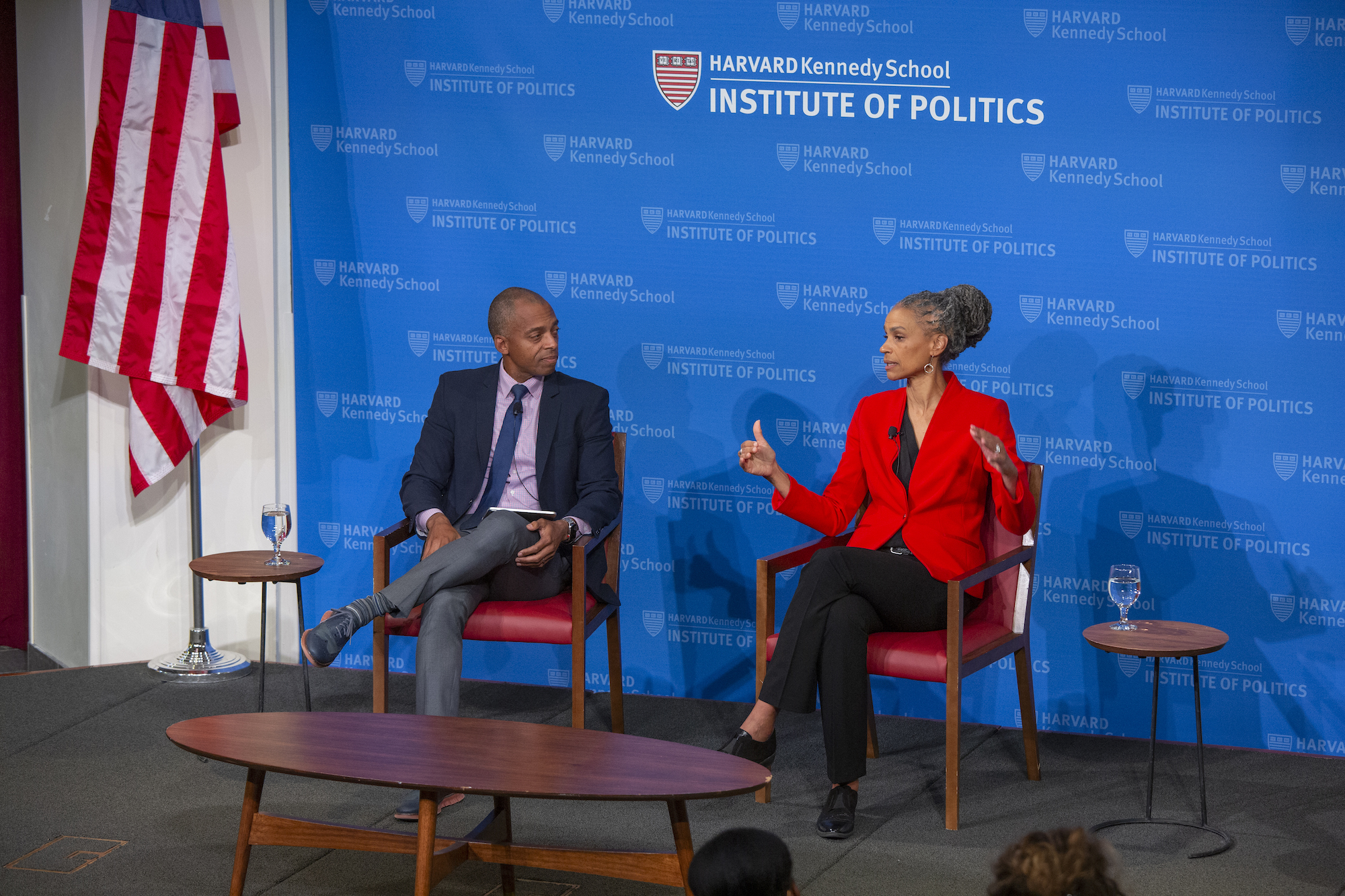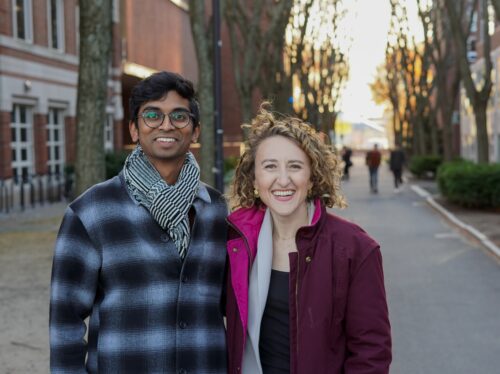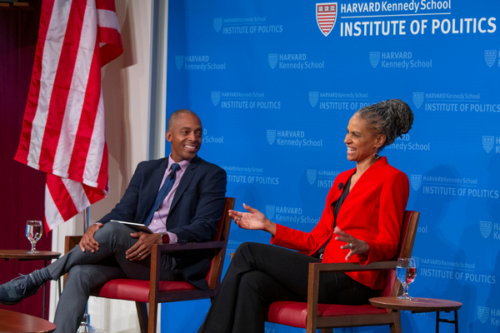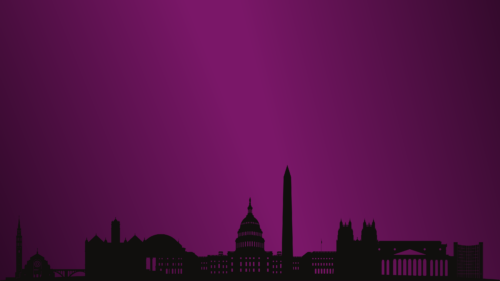Earlier this week, Ukrainian President Volodymyr Zelenskyy joined the Harvard Kennedy School community virtually in the JFK Jr. Forum to discuss the defense of democracy in Ukraine. The next day, a panel of experts asked: Will democracies around the world survive the renewed rise of authoritarianism? On Thursday, the conversation in the Forum turned yet again to democracy. Maya Wiley, president of The Leadership Conference on Civil and Human Rights—the nation’s oldest and largest civil rights coalition—posed the question: What is the purpose of democracy?
For Wiley the answer is simple. Through democracy, everyone is meant to have a say. No matter what they look like, where they came from, or what their heritage is—they get a voice. “The fundamental problem democracy is trying to solve is how to be a pluralist society.”
Despite American democracy’s seeming promise of universal enfranchisement, at its core remains the fundamental contradiction between the lofty rhetoric of rights and the continued prevalence of racial injustice. “Can you understand the existential threat to American democracy, liberal democracy in many parts of the world right now, without understanding the role of race or racism or colonialism,” asked Professor Khalil Gibran Muhammad, director of the Institutional Antiracism and Accountability Project (IARA) at the Ash Center for Democratic Governance and Innovation, who joined Wiley in conversation.
“The Crisis of Racial Justice in a Faltering Democracy,” the discussion between Wiley and Muhammad was a part of a joint series hosted by IARA and the Institute of Politics (IOP) titled “Looking Back, Paying it Forward,” which throughout 2022 is examining how reparative practices, truth commissions, and institutional reckoning with structural oppression provide ways forward for equitable change. The series naturally raises questions about the influence of the past on the present, and as the conversation on Thursday unfolded, it became increasingly clear how contemporary ails of democracy are rooted in history.
“The truth of this country is this [the failure to achieve a multiracial democracy] has been the fundamental struggle from the inception,” noted Wiley.

Nor can the racially charged rhetoric of the Trump years be seen as a mere aberration. “This is not a blip on the radar. This is not Trump was in office… What we’re facing in terms of the absolute and apologetic attack on democracy and pluralism, and on inclusion and on justice, and on fundamental rights is something that’s been constructed over the past 20 some years.”
Though Wiley conceded that the constant assaults on democracy and racial justice—especially as the world reels from a devasting pandemic—can be overwhelming, she noted that organizers were hard at work on the ground across the country. Many of these unsung coalitions and campaigns have been quietly pressing ahead on issues core to a functioning multiracial democracy such as voting rights. She raised the example of the Leadership Conference on Civil and Human Rights, home to 230 member organizations, which often operates outside of the national media spotlight. Despite its lack of notoriety, the Conference has played a key role in recognizable issues like removing the citizenship question from the Census and helping to advance the John Lewis Voting Rights Act and the Freedom to Vote Act through the House of Representatives. “It’s important for folks to recognize how much power we have when we’re together,” she emphasized.
Through collective power, Wiley laid out multiple pathways to advance the goal of a stronger multiracial democracy in the United States, including measures of accountability. Responding to a question about reparations, she noted congressional legislation to form a commission to examine avenues for slavery reparations. She also linked economic justice as an important means of reparative work. “We look at our economic justice platform, from the vantage point of racial justice. How we get more, better systems change that creates more prosperity and opportunity and reverses some of that history.”
Looking forward, Wiley reminded the audience that the future was very much in their hands. “Students have a tremendous amount of power.” Her final advice to the students in the room was to pick an issue and truly focus on it—distill it into a simple message and direct that message to action. “The ability… to get attention is very strong and powerful. And I think that’s true for all of us.”
Watch the Full Discussion
Written by Sarah Grucza, Assistant Director of Communications
Photo Credit: Heratch Ekmejian





